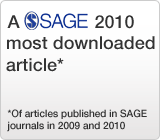Factors in Sustaining a Professional Learning Community
Abstract: School change efforts to develop schools as learning communities result in schools that are constantly learning and thus changing. This collective case study of four schools involved in a 4-year reform effort begins to examine the ongoing sustainability of a learning community. The study draws insights about the sustainability of learning communities in these schools as involving issues of change, loss, and hope. After offering a description for each of these themes, a discussion is offered that draws connections to the environmental factors of administrative support, collaborative structures, relational integrity, enablers, and coherence that operated to perpetuate reform in these schools.
 |
Published in the NASSP Bulletin of the National Association of Secondary School Principals by Sage Publications, 2009, Issue 93(3) 184–205. |
Sustainability Issues of a Learning Organization
Abstract: This case study considers the current state of four schools involved in a school reform effort that attempted to develop learning organizations in groups of teachers. It explores the state of the learning organization today, three years after the four-year reform effort ended. Data was collected to consider the following characteristics of learning organizations: collaboration, inquiry stance, focus on multiple dimensions of change, and supporting and challenging activities to teaching practices. The study discusses issues of sustainability when the intent is for the organization to continue to grow and develop, potentially “outgrowing” the activities the reform effort attempted to engender.
Presented in San Francisco at the American Educational Research Association conference in April of 2006. Please click here or the title above to view a pdf file of the paper.
Approaching School Reform with an Ecocentric Perspective
Abstract: An ecocentric perspective which views the world as a complex living community is more closely aligned to the systems-based approaches underlying whole school change efforts than the machine metaphor-based modern worldview. The authors consider the parallels between an ecocentric view and whole school reform suggesting that such a view would increase the success of school reform. To begin fostering such a perspective in a school reform setting, an Ecocentric View Analysis Tool developed by the authors is described. The paper uses the tool to analyze school reform models designed by Curriculum & Pedagogy (C&P) session participants. Discussion around their individual analyses deepened the dialogue about school reform and tested the usefulness of the tool.
Published in (De)liberating Curriculum and Pedagogy: Exploring the Promise and Perils of “Scientifically Based” Approaches, K. Kesson, T. Kelly, & W. Walter-Bailey (Eds.), 2005. Published by Educator's International Press, Troy, NY. Please contact publisher for copyright permission on this article.

